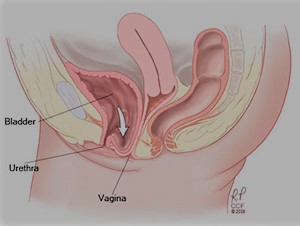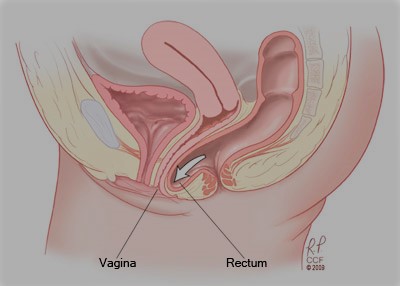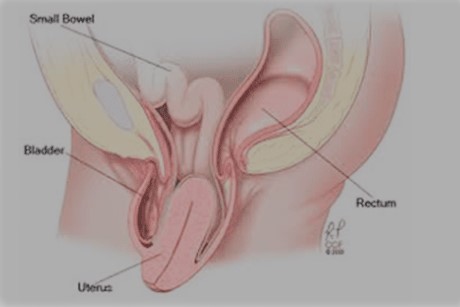In Pelvic Floor Physical therapy, as we look over our patients’ intake paperwork, one thing…

Is my bladder falling out of my body?! Pelvic Organ Prolapse what it is an how it is diagnosed.
When you are told you have a bladder prolapse, bowel prolapse or uterine prolapse and have a freak out moment wondering if that means those organs could just fall out at any time, you are not alone. Many of our patients do not fully understand what prolapse is, and this can be scary. Don’t fret, we are going to explain pelvic organ prolapse and what it means and how you can be diagnosed with it. Hopefully we can take the fear out of the diagnosis and give you some reassurance about it.
So, what is happening when we have a pelvic organ prolapse? The organs in the pelvis are suspended and supported by ligaments and fascial tissues, and the muscles of the pelvis and abdomen. As we age, and become pregnant and deliver babies these structures are stretched and strained and this support system is weakened. This weakness combined with gravity, causes the organs in the pelvis to descend. Now, just gravity is not always enough to cause a prolapse. Often we have issues like constipation and chronic straining to have a bowel movement that will worsen a prolapse. Or, heavy lifting with poor muscle coordination can cause prolapse. Poor breathing patterns with activity can contribute to prolapse.

When the organs descend, they are pushing into the walls of the vagina. This is what we actually see when we do a pelvic exam and “see” a bladder or bowel prolapse. We are looking at the vaginal wall that has been pushed down into the vaginal opening. These are graded from 1-4 by severity.

Grades 1 and 2 are mild and respond very well to conservative treatment like pelvic floor physical therapy which would include an individualized program of stretches and exercises to reduce the strain on the pelvis and manage Symptoms. Grade 3 & 4 should be seen by a surgeon, typically a urogynecologist or gynecologist. But it is a good idea for these grades 3 & 4 to see a pelvic PT to address any pelvic floor muscle dysfunction that is likely going on and to prepare for surgery so that rehab afterward is smooth.

The Symptoms of Pelvic organ prolapse can be:
-feeling of heaviness in the pelvis
-difficulty emptying bowel or bladder
-constipation
-bladder leakage
-nervousness/anxiety
If you are experiencing these symptoms or have been told you have a prolapse, do not fret, there are many options for management of this, and a pelvic floor physical therapist will be a great guide to you, to navigate the recovery, educate you about the condition and ensure you are feeling confident and safe as you manage pelvic organ prolapse.
We offer a free 15 minute phone consultation to help you determine if pelvic floor physical therapy is right for you. Click HERE to schedule one now.


